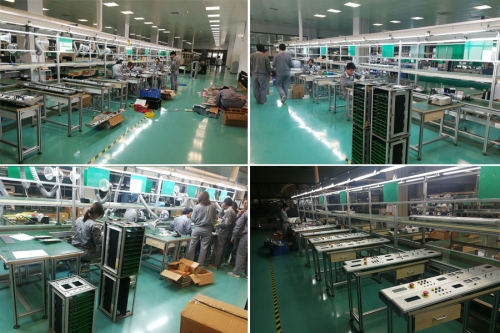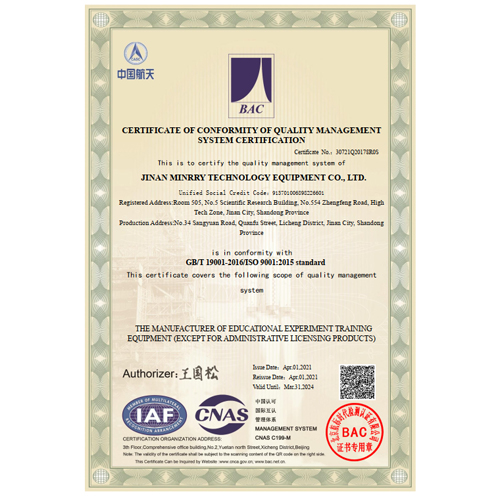Whatsapp: 0086-15153106200
E-mail: admin@minrry.com MR009R Computerized Air Conditioning Cycle Test Rig Didactic Equipment Refrigeration Laboratory Equipment
Study unit for humidification, heating, cooling and dehumidification processes and plot them on Psychometric charts 0.5-1 TR. Hermetically sealed compressor. Air Cooled condenser made out of copper pipe & Aluminum fins capacity with fan cooling, Air calorimeter type evaporator. The air passed by a fan through duct. The expanded refrigerant passes through evaporator coils, fixed in the duct. The passing air comes in contact with the coils & gets cooled, Thermostatic expansion valve, Hand Shut Off type Service valve, Finned type heater for air heating,Air duct of size 250 x 250 make out of CRC sheet in which evaporator is fitted: Electrically fired small baby boiler for maintaining humidity of air with electrical heater 1 HP capacity centrifugal blower with air control arrangement. Blower set of thermocouples.

CONTROL PANEL : COMPUTER, GRAPHICS & SOFTWARE:
Computer M Pentium IV, Dual Core processor. 3 GHz speed, 512 MB RAM, 160 GB HDD, DV DRW,FDD optical
Mouse, Keyboard, 2 serial port & one parallel port USB part in front, 17” LCD monitor
Interfacing Cards ADC Card
DAC card. 1 No
Communication RS. 232 port
SCADA Software Feature
2-Way communication for control & data acquisition
Auto / Manual Control mode
P, PI, PD and PID modes
Live mimic diagram of the process including SP, OP and PV
Online data display in tubular chart and graphical form
Bump less transfer between open & closed loop operations
Powerful graphics with trends and bar page
Alarm function

Data printing facility
Event recording facility
Window based user – friendly software
Transmitters
M Power Transmitter: for power measurement of compressor.
Pressure Transmitter: 2 Nos. for H.P., L.P. measurement.
Flow Transmitter: for Refrigerant flows measurement.
Set of RTD sensor: For temperature measurement.
Range of experiments M 1. To study all components used in Air Conditioning system.
2. To study the Vapor compression Refrigeration cycle.
3. To study the heating, cooling, Humidification, & dehumidification process.
4. To determine the Refrigeration Effect, Work Input, Actual C.O.P., Carnot C.O.P., Theoretical C.O.P., Relative C.O.P., Ton of Refrigeration, and Plant Efficiency
